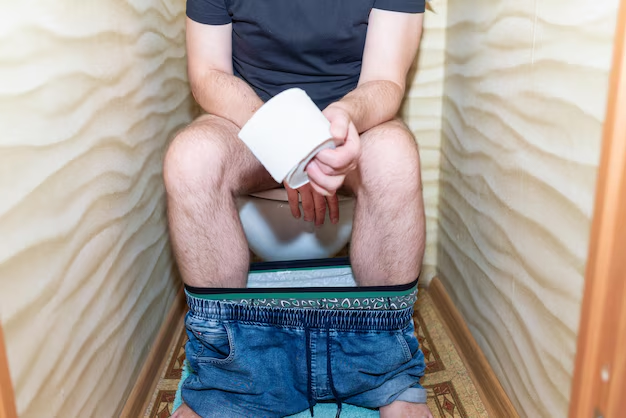Your Guide to How To Wear Male Incontinence Pads
What You Get:
Free Guide
Free, helpful information about Incontinence FAQ and related How To Wear Male Incontinence Pads topics.
Helpful Information
Get clear and easy-to-understand details about How To Wear Male Incontinence Pads topics and resources.
Personalized Offers
Answer a few optional questions to receive offers or information related to Incontinence FAQ. The survey is optional and not required to access your free guide.
Finding Comfort: The Best Way to Wear Male Incontinence Pads
Navigating the world of incontinence can be intimidating, but with the right tools and information, life can be more comfortable and confident. Male incontinence pads offer a discreet and effective solution for those experiencing urinary control issues. Wearing these pads correctly is key to ensuring comfort and minimizing worries. Here’s a concise and practical guide to aid you in making the best of your incontinence pads.
Understanding Incontinence Pads
Incontinence pads are designed to absorb moisture and protect against leaks, allowing individuals to maintain their daily routines without interruption. For men, these pads are specifically shaped to fit comfortably around the male anatomy, providing maximum protection where it’s needed most.
Step-by-Step Guide to Wearing Male Incontinence Pads
Choose the Right Pad
Selecting the appropriate pad size and absorbency level is crucial. Pads range from light to heavy absorbency and are available in various sizes to accommodate different body types. A snug yet comfortable fit will ensure minimal leakage and maximum discretion.Prep Yourself
Before you begin, ensure that you are clean and dry. For optimal skin health, consider using an anti-chafing cream or barrier ointment to protect sensitive areas.Positioning the Pad
Unfold the incontinence pad and locate the adhesive strip. Peel back the paper to reveal the adhesive and position the pad inside your underwear.Secure in Place
Press firmly to secure the pad to your underwear. It should sit comfortably against the body, cupping around your genital area. Ensure the pad is aligned accurately to avoid bunching or shifting throughout the day.Adjust Your Clothing
Once the pad is in place, readjust your clothing for comfort and discretion. This will help conceal the pad and ensure that it does not interfere with your mobility.Monitor and Change Regularly
Change the pad frequently to maintain hygiene and prevent skin irritation. Carry a spare pad when you’re out to deal with unexpected leaks.
Expanding Your Support Network
Managing incontinence may also bring about financial concerns, but several programs can help ease this burden. Understanding available resources can significantly enhance your quality of life while managing this condition.
Government Aid Programs
Agencies offer assistance to cover healthcare products. Look into Medicare or Medicaid for potential coverage on incontinence pads.Non-Profit Assistance
Organizations often provide support to those with limited income or financial difficulties.Healthcare Provider Solutions
Consult your healthcare provider about subscription plans that might offer discounts or bulk-purchase options for incontinence supplies.
Empowerment Through Education and Financial Support
Incontinence doesn’t need to disrupt your life. By properly wearing male incontinence pads and exploring available resources, you can maintain comfort, dignity, and financial peace of mind. Here’s a curated list of assistance avenues to explore:
💸 Medicaid and Medicare Coverage
Inquire about up to 100% coverage for incontinence supplies in specific plans.🏥 Veteran’s Benefits
Veterans may be eligible for additional support for medical supplies through the VA.📞 Community Assistance Programs
Contact local health departments for donation programs or subsidized costs for incontinence products.🛒 Bulk Purchase Discounts
Many manufacturers offer discounts for bulk buys—consider subscription services for financial ease.
Choosing the right tools and support systems can overwhelmingly impact your lifestyle, allowing you to live freely and confidently. Whether it’s discovering the best fit for your pads or tapping into financial support, remember that you are not alone on this journey.
What You Get:
Free Incontinence FAQ Guide
Free, helpful information about How To Wear Male Incontinence Pads and related resources.

Helpful Information
Get clear, easy-to-understand details about How To Wear Male Incontinence Pads topics.

Optional Personalized Offers
Answer a few optional questions to see offers or information related to Incontinence FAQ. Participation is not required to get your free guide.


Discover More
- a Patient You Are Caring For Uses Incontinence Briefs
- Are Incontinence Products Tax Deductible
- Are Incontinence Supplies Covered By Medicare
- Are Incontinence Supplies Tax Deductible
- Can a Bladder Infection Cause Urinary Incontinence
- Can a Kidney Stone Cause Incontinence
- Can a Urinary Tract Infection Cause Incontinence
- Can a Uti Cause Incontinence
- Can Constipation Cause Incontinence
- Can Constipation Cause Urinary Incontinence
